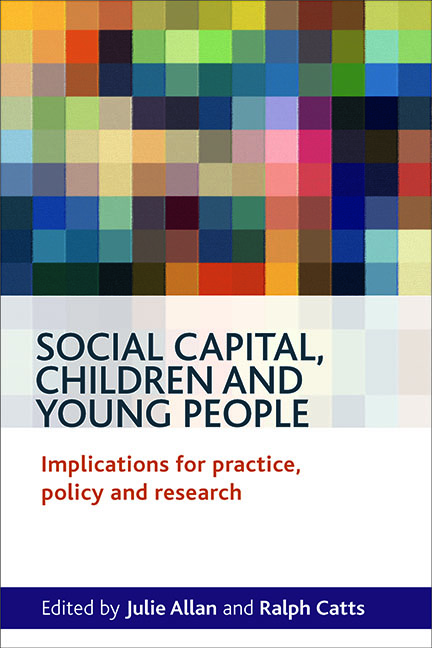two - Evaluating an inclusive education programme: lessons in transient social capital
Published online by Cambridge University Press: 01 September 2022
Summary
Introduction
This Inclusive Learning Network (ILN) case study examines how the concepts and theoretical frameworks that are centred upon social capital can be used to understand the dynamics at play in educational projects. The case study focuses on a network of dispersed individuals who came together periodically to undergo training and skills development with a view to improving local authority educational services for pupils with additional support needs. The research team were thus enabled to look at spatiality and social capital, that is, how social capital operates across different spaces and how spaces can be constructed to foster social capital.
The case study also provided the opportunity to examine the role of social capital within processes of transition and the ways in which social capital itself can be said to be transitory. Because the ILN was a timelimited project, the relationships fostered within it could only ever be transient. However, a premise of the learning theory that underpinned its approach, in common with many projects that have the generation of social capital as a goal, is that relations modelled within the course of the project could serve as exemplars that could be transplanted to more permanent contexts. The findings raise important questions about the differing degrees of transferability and durability of social capital for each participant and the way that this depends on the differing factors of each participant's local context and position within that context. A discussion of these interlinked issues concludes with a consideration of the employment of social capital in policy and professional practice and the kinds of investments that it represents.
The ILN as a context for understanding transitional social capital
The Inclusive Learning Network (ILN) was specifically designed to give stakeholders with different levels of engagement in inclusive learning an opportunity to step away from the immediate social structures of their everyday experiences and, within a supported environment, consider the structures, roles, processes and tools that can improve inclusive education. In other words, this gave teachers, parents and a range of support professionals, such as physiotherapists, a chance to interact in a setting other than the often very pressurized context of service review meetings (Slee and Allan, 2001).
- Type
- Chapter
- Information
- Social Capital, Children and Young PeopleImplications for Practice, Policy and Research, pp. 15 - 34Publisher: Bristol University PressPrint publication year: 2012



